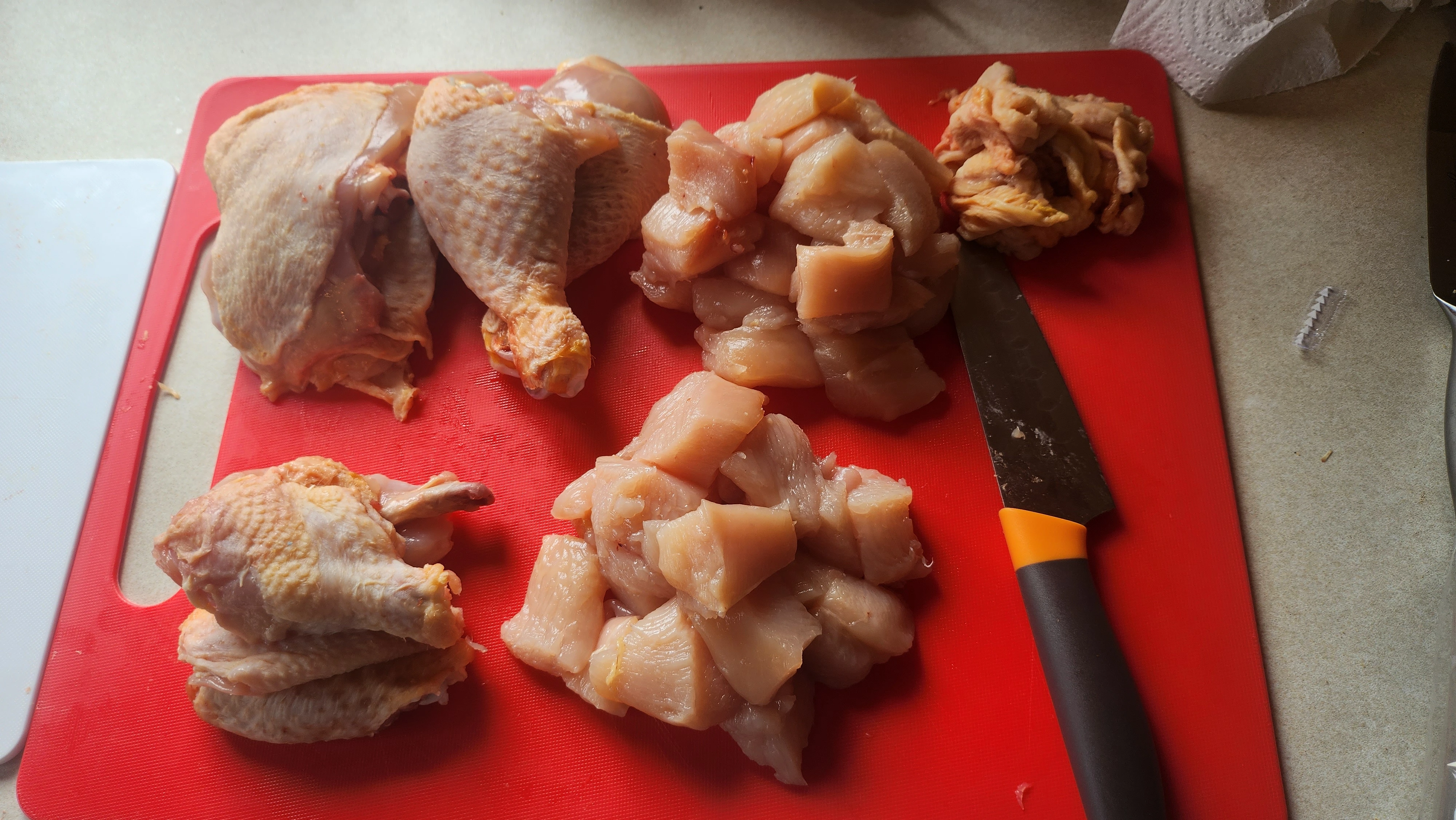so this is the other end of animal husbandry, but I feel it's important to know how to deal with an animal on the cutting board with skill and respect before you ever dispatch one. I'll try not to make this too long and rambly, but here's my thoughts on why you should try to learn how to properly break down whole birds.
First, respect. I find that seeing an animal in a form that still looks vaguely like an animal helps build that connection in your mind that yes, this was a living creature once. And I think that's important when we're still buying chickens from the grocery store-- obviously if you're raising your own chickens already, you're more intimately aware of that. I have a lot of issues with the meat industry, and one of those is how sanitised and detached the meat buying process is. It's a lot easier to ignore that the food you're buying was once alive when it's a plastic package of seven breasts from 3 and a half different animals.
Second, frugality. I'm not saying it's strictly cheaper to buy chickens as whole birds vs. a pack of breasts or thighs, maybe like for like but I find when I buy a whole bird I'm more likely to purchase one that was as high-welfare as possible. But once I have that bird, I'm more likely to use the whole thing in a frugal mindset. I'm not going to toss the drumsticks if I don't like dark meat, or discard the skin. I worked hard to make that one bird into what can be around 10 meals (for a single person), and I'm going to appreciate each bit, up until all that's left is bones and I'm making stock.
Third, meal diversity. I know a lot of people just eat the breasts, but continuing from the second point, when you've broken down the entire bird you're kind of boxed in to making a meal with the drumsticks, with the thighs, with the wings. Maybe this is only a benefit to some people, but I feel like when I have ingredients I Must use I have an easier time deciding what I will make. And I'm pushed out of my comfort zone of diced chicken breast into remembering that there are recipes I love for thighs, and that I can make my own hot wings.
Anyways, now that I've hopefully convinced you that you should have this butchering skill whether or not you intend to raise meat chickens, here's a video I used to learn how to do it myself: https://www.youtube.com/watch?v=iTNEjPOixKY
Also please enjoy the photo of my recent chicken butchery... nobody make fun of me for having the shittiest plastic cutting board and knife, I just moved house and all of my nice stuff is still back in my old place and I needed Something on a tight budget so I could still cook. (But in general, if you're looking for a cutting board, get one made of wood. The heavier the better. These shitty plastic cutting boards are like chicken turntables I swear to god)
